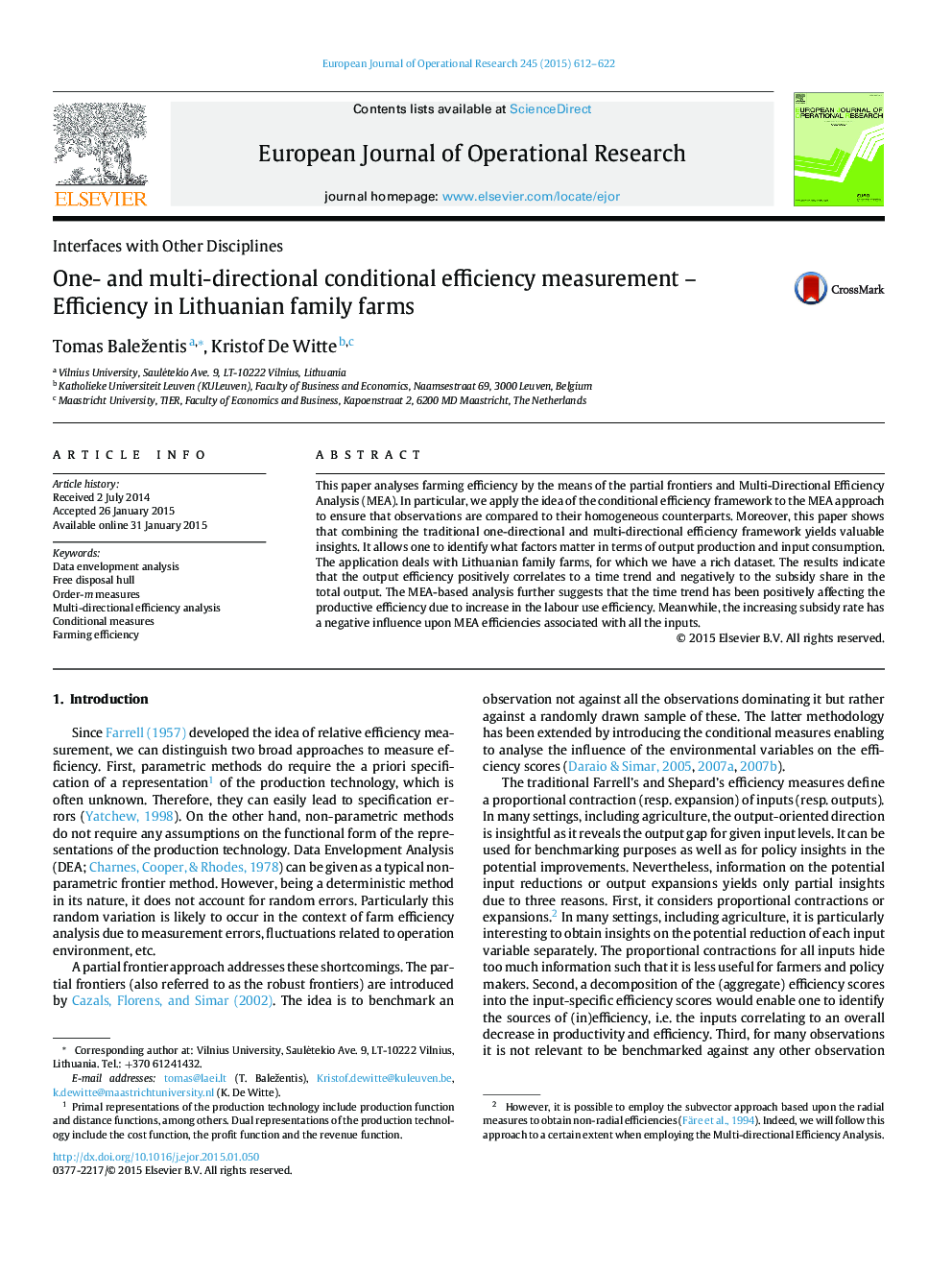| Article ID | Journal | Published Year | Pages | File Type |
|---|---|---|---|---|
| 479534 | European Journal of Operational Research | 2015 | 11 Pages |
•The paper extends the Multi-directional Efficiency Analysis (MEA) to the conditional framework.•Efficiency of Lithuanian family farms is analysed by the means of the conditional order-m frontiers and MEA.•The time trend and subsidy rate have a significant influence on the output efficiency.•Input-specific results obtained via the conditional MEA are also presented.
This paper analyses farming efficiency by the means of the partial frontiers and Multi-Directional Efficiency Analysis (MEA). In particular, we apply the idea of the conditional efficiency framework to the MEA approach to ensure that observations are compared to their homogeneous counterparts. Moreover, this paper shows that combining the traditional one-directional and multi-directional efficiency framework yields valuable insights. It allows one to identify what factors matter in terms of output production and input consumption. The application deals with Lithuanian family farms, for which we have a rich dataset. The results indicate that the output efficiency positively correlates to a time trend and negatively to the subsidy share in the total output. The MEA-based analysis further suggests that the time trend has been positively affecting the productive efficiency due to increase in the labour use efficiency. Meanwhile, the increasing subsidy rate has a negative influence upon MEA efficiencies associated with all the inputs.
